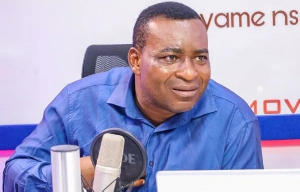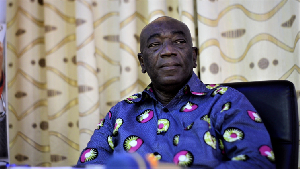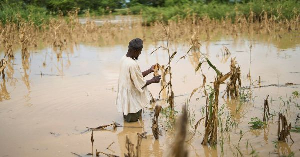Opinions of Thursday, 11 June 2020
Columnist: Auberon Jeleel Odoom
Fulfilling the right to health for individuals during the coronavirus pandemic
Nelson Mandela is quoted as saying “… a nation should not be judged by how it treats its citizens in better positions, but how it treats those who have little or nothing.”
The statement is particularly relevant when we consider how a nation treats its vulnerable citizens in situations of humanitarian emergencies, pandemic, health resources constraints (both human and material), and the protection of the citizens are at high stakes. Dignity is an intrinsic value to every human being and all human rights derive from it. We are all equal before the law and everyone has the right to be treated equally.
The International Covenant on Economic, Social and Cultural Rights (ICESCR) recognizes the right to the highest level of health for all human beings, and Article 25 of the Convention on the Rights of Persons with Disabilities (CRPD) makes it explicit that people with disabilities have the right to enjoy the highest attainable standard of health without discrimination on the basis of disability and that State Parties must take the necessary steps to respect, protect and fulfil their right to health.
Article 11 of the CRPD put an obligation on State Parties to take all necessary measures to ensure the protection and safety of persons with disabilities in situations of risk and humanitarian emergencies.
The right to health and, protection and safety in situations of risk or humanitarian emergencies implies persons with Intellectual and Developmental Disabilities (IDDs) should be given access to urgent medical attention system in the event of accidents, epidemics or similar health hazards, as well as access to relief provisions in disasters and humanitarian emergency situations.
State Parties need to put in place measures to ensure individuals with IDDs get equal and timely access to all relevant health care services, including preventive, curative and rehabilitative health services as well as health education.
Discrimination on the basis of disability is prohibited in the enjoyment of any right. Therefore, it is contrary to the realization of their right to health when any distinction, exclusion, restriction or inaction hinder individuals with IDDs’ access to health care services during the COVID-19 pandemic.
As an Organization of Persons with Disability (OPWD), representing persons with intellectual and developmental disabilities and their families in Ghana, Inclusion Ghana recommends to health authorities or Ghana Health Service to take the following into account as they continue their heroic efforts to provide quality services to all persons in Ghana who are at risk of or have COVID-19 infection:
1. Living with Intellectual or Developmental Disability (IDD) does not limit the survival of a person after contracting COVID-19. Also, it does not imply a terminal situation and in no case can serve to justify a limitation to therapeutic care, treatment, and other health care services.
2. All COVID-19 related health care services for persons with IDD should make provision for the presence of their Support Persons, who should be provided with relevant personal protective equipment (PPE). Persons with IDD depend more on their support persons and trust them. Taking a person with IDD through any relevant health care processes without assurance of the support person could easily trigger a crisis.
It is necessary that the national health system, although dramatically stressed in the current situation, cast available resources to guarantee to persons with IDDs the provision of health care services according to their human dignity. We fully appreciate the situation of overload and inadequate resources facing health care providers during the situation of health crisis generated by COVID-19.
We are also aware that, in circumstances of a severe stretch of resources, it is a painful duty of the healthcare professionals to establish and apply protocols to help make decisions fairly and transparently, based on the principle of distributive justice.
However, no criteria or recommendation for prioritization in patient care can be considered valid if it violates the principle of non-discrimination. The mere presence of a disability, particularly of intellectual and developmental type, cannot, in any case, be used as a criterion for denying advanced life support measures to a segment of our population.
Value judgments to apply prioritization criteria should be devoid of stereotyping and prejudices towards persons with IDDs and instead be neutral. Thus, the assessment of the patient should be global, not based on the functional state but considers the person from a comprehensive approach.
Where considerations are made about the functional state of the sick person, they should refer to the functional state prior to time of contracting COVID-19 disease. Every life must count in the judgement of a country’s human rights values.














